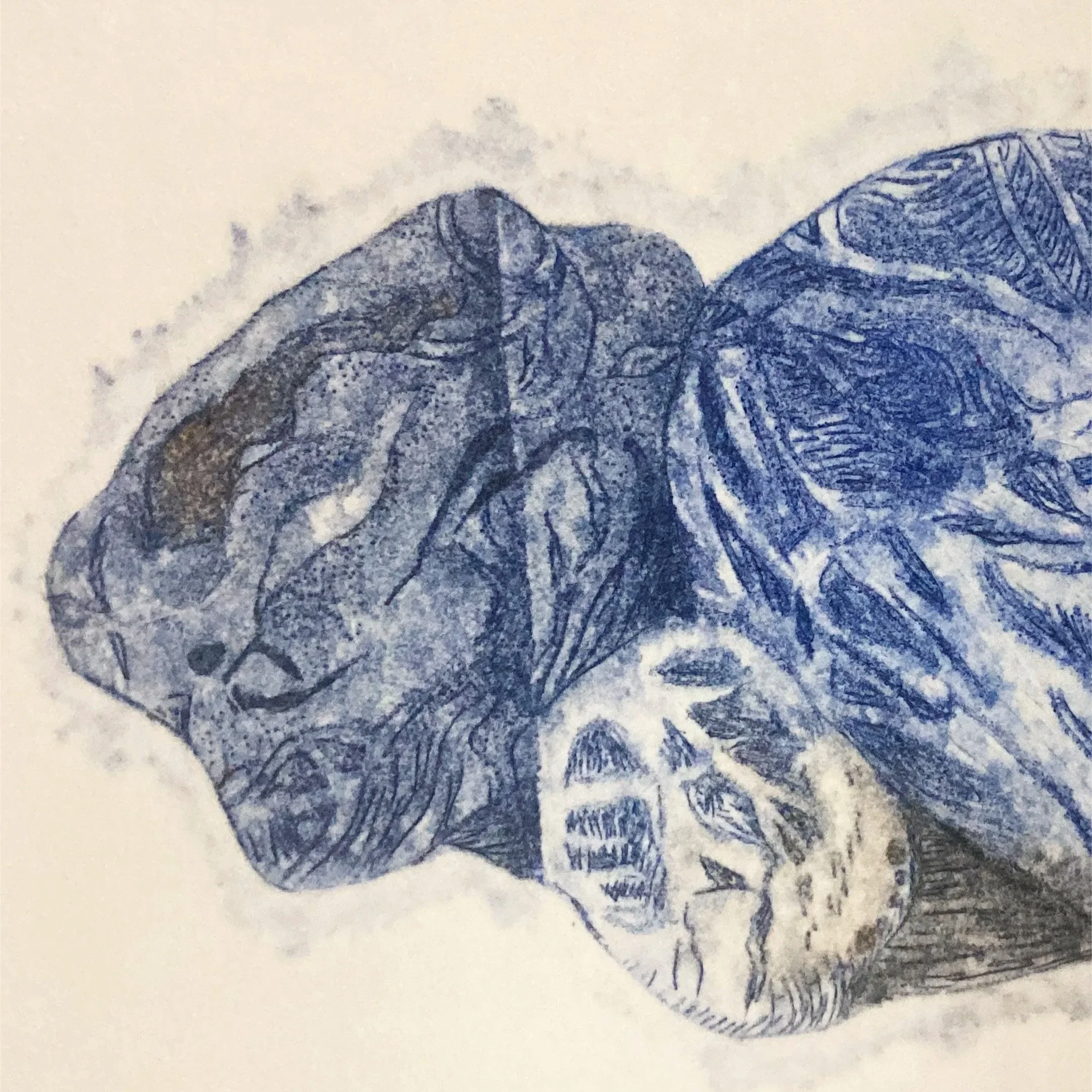Getting Things Done, Gently
Do you know that voice in your head that starts shouting “clean the kitchen!” right when you finally sit down to finish your last work task? Or the one that insists on filing receipts when what you really need is to deal with the growing mountain of dishes in the sink?
I meet that voice several times a day — when I wake up, when I try to get on the yoga mat, when I’m meant to call a client or send an invoice. It’s like having a tiny project manager living inside my head, armed with a clipboard and far too much coffee.
For a long time, I thought resistance meant there was something wrong with me. The shame that came with it felt like proof. I was sure the only way to deal with resistance was to push through it. If I could just be a bit more disciplined, a bit more focused, a bit more like those mythical “organised people” I envied — everything would be fine.
But it wasn’t. The harder I pushed, the tighter the knot became. I started to feel like my whole life was one long to-do list written in invisible ink — I could never quite finish it, and it was always whispering in the background.
The Worst Office Manager in the World
In my last post, I wrote about discovering Getting Things Done (GTD) by David Allen — and how it genuinely saved my sanity. He calls the brain “the worst office manager in the world.” Because really, what kind of manager reminds you to buy light bulbs at 2am, but forgets to mention it when you’re actually in the shop?
Learning to externalise my tasks, organise them, and create systems was a revelation. It brought order to chaos. My nervous system finally exhaled. I could manage more work, be more creative, and even sit still long enough to meditate.
But after a while, I noticed something else: no matter how perfect my system was, resistance still showed up.
The Bossy Child Who Thinks She’s My Mom
Inside me, there’s a bossy little girl who’s convinced she’s in charge. She’s a fierce dictator, barking orders: “You should have finished this by now!” or “Everyone else is doing better!”
For years, I believed her. I thought she was helping. But I’ve started to realise she’s just scared. Resistance, I’ve learned, isn’t a sign of weakness — it’s a form of intelligence. It’s the body and psyche saying, “Something here needs your attention.”
Sometimes resistance means I’m tired.
Sometimes it means I’m afraid.
Sometimes it’s just asking me to slow down and reconnect with why I’m doing what I’m doing in the first place.
A Softer Practice
These days, I’m learning to meet resistance with curiosity instead of combat. When I feel that familiar heaviness, I pause and ask:
“What’s happening here? What do you need?”
This isn’t always easy. I still have days when I want to bulldoze through, when the black belt in productivity wants to prove she’s still got it. But I’m also learning that the path of practice — whether it’s yoga, meditation, or running a business — isn’t about perfection. It’s about a relationship.
In Buddhism, there’s an idea of “loving awareness” — a way of turning toward difficulty with kindness rather than judgment. Tara Brach calls it Radical Acceptance: meeting our imperfect, messy human selves with a full-hearted yes.
I’m beginning to see that Getting Things Done and Radical Acceptance are not opposites. They’re dance partners. One helps me structure my outer world; the other helps me hold my inner world with compassion.
Listening to Resistance
Resistance, it turns out, is a wise teacher. It might be telling us:
“You’re doing too much.”
“You’ve lost touch with your why.”
“This isn’t aligned anymore.”
“You need to rest before you can begin again.”
When I listen, resistance softens. It doesn’t disappear, but it transforms — from a wall I’m fighting against into a doorway I can walk through.
An Invitation
If your to-do list feels like it’s growing faster than you can tick it off, or your digital clutter is driving you mad, you’re not alone. We’ll be exploring this in the next Her Circle session — how to get things done while staying kind to yourself.
And if you’d like some personal support finding a system that actually suits your mind and rhythm, I have a few one-to-one coaching spots open this month. Together we can find that sweet spot between structure and softness — where getting things done becomes an act of care, not combat.
📚 Reading Inspirations
Radical Acceptance – Tara Brach
Self-Compassion – Kristin Neff
When Things Fall Apart – Pema Chödrön
The Artist’s Way – Julia Cameron
Do Less – Kate Northrup
Getting Things Done – David Allen

